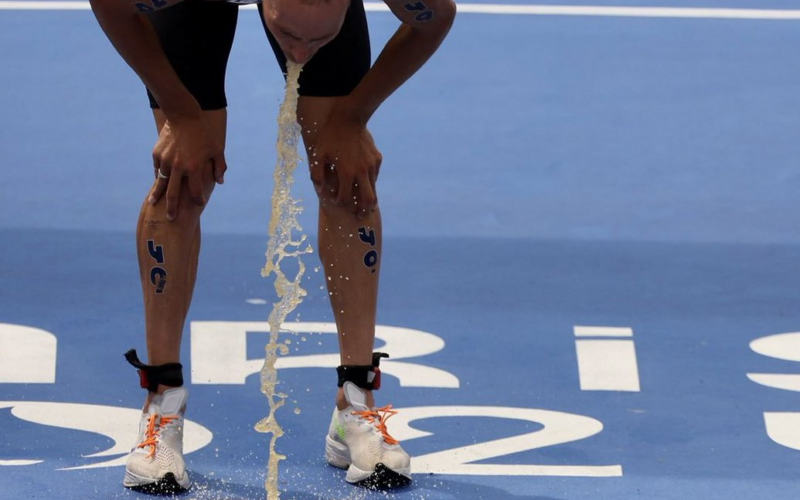Concerns over the safety of athletes at the Paris Olympics have come to the forefront following the illness of Belgian triathlete Claire Michel, who reportedly fell sick after swimming in the Seine River during last Wednesday’s women’s triathlon event. The incident, which led to Belgium’s triathlon team withdrawing from the mixed relay event, has sparked criticism over France’s inability to secure safe conditions for competitors.
The 35-year-old Michel finished 38th in the race but later required hospitalization, with reports indicating she may have contracted an E. coli infection. While these reports have not been officially confirmed, the incident has raised serious concerns about the water quality of the Seine, which has long been plagued by pollution.
Despite a $1.5 billion investment to clean up the river ahead of the Olympics, the Seine has consistently failed to meet water quality standards. Tests conducted just days before the event revealed dangerously high levels of bacteria, prompting organizers to cancel training sessions and postpone the men’s individual triathlon. However, the women’s event proceeded as scheduled, with disastrous results for Michel and her team.
The Belgian Olympic Committee, in a statement, expressed hopes that lessons would be learned from this incident, calling for clearer guidelines and better conditions for future competitions. However, the fact that athletes were put at risk in the first place has led to widespread criticism of the French authorities’ handling of the situation.
The case of Michel’s illness is not an isolated one. Swiss triathlete Adrien Briffod also fell ill after competing in the men’s event, forcing the Swiss team to adjust their relay lineup. While the Swiss Olympic Committee could not confirm a direct link to the Seine’s water, the pattern of illness among athletes who swam in the river is alarming.
The incident has cast a shadow over the Paris Olympics, raising questions about the decision to hold events in the Seine despite its long history of pollution. Critics argue that the health and safety of athletes should have been prioritized over the symbolic value of using the iconic river as a venue.
“The Seine has been dirty for a hundred years, so they can’t say that the safety of the athletes is a priority,” remarked Belgian triathlete Jolien Vermeylen, echoing the frustrations of many within the sporting community.
The French organizers’ failure to provide a safe environment for athletes reflects poorly on the country’s ability to host international sporting events. As the countdown to the 2024 Olympics continues, this incident serves as a stark reminder that significant work remains to be done to ensure the safety of all participants. The eyes of the world are on France, and the pressure is mounting to address these critical issues before they further mar the Games.








